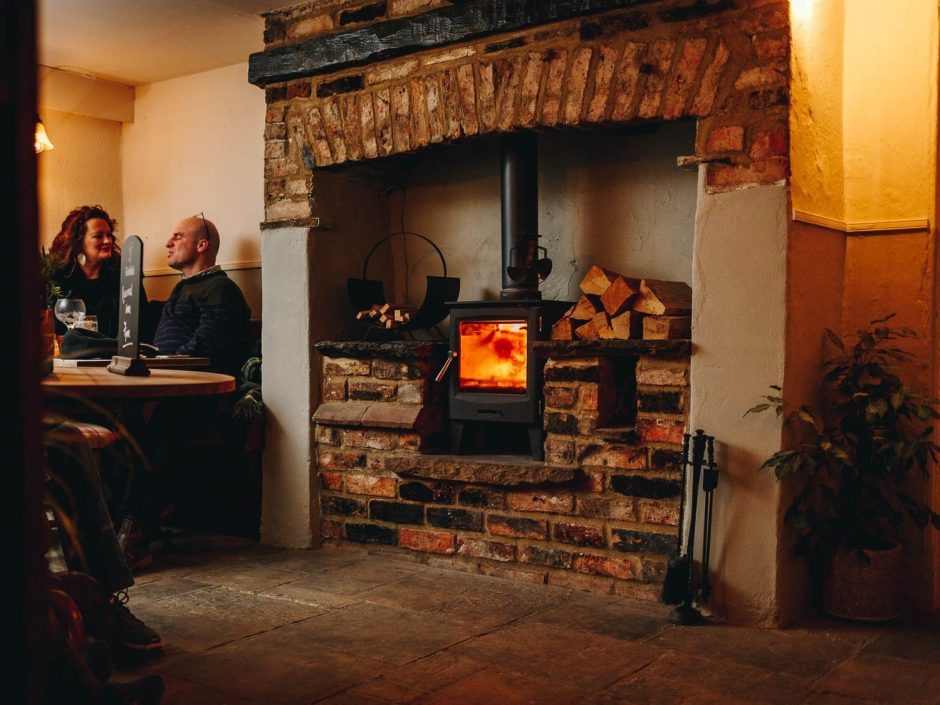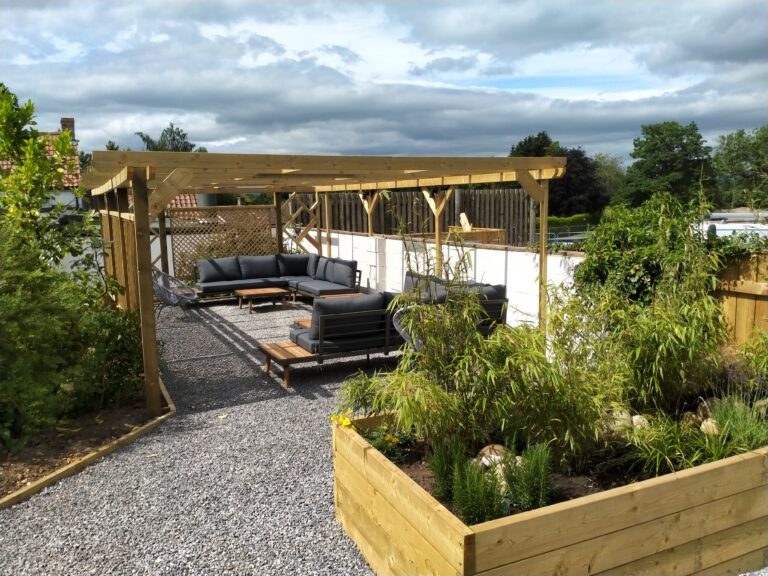Small community pubs have had two difficult years with several enforced closures and lockdowns. While this fluctuating trading model brought new challenges for the hospitality trade sector, it also enabled community businesses to show their resilience.
Chris Cowcher, head of policy at the Plunkett Foundation, says only one community owned pub closed during the pandemic with the rest proving “remarkably resilient”.
“What’s even more amazing is that there have been new pubs opening,” he says. “In 2021, 15 new community pubs and 11 new community shops opened their doors. Despite all the challenges facing these communities, groups are still finding a way of coming together, raising funds and pursuing community leadership on behalf of their community.”
The Plunkett Foundation is a charity that helps rural communities in the UK create and run community-owned businesses. While these businesses are now trading as usual, the losses and debts incurred over the last two years and rising costs will continue to impact their operations.
“Local engagement and community consultation remains key to making sure their services remain relevant, supported and used by the local area,” says Mr Cowcher.
One of the advantages community businesses had was having reserves in the bank at the beginning of the pandemic, which enabled some of them to cope with the loss of income.

“These businesses are owned and run by local residents, for local revenue, which means that there was a willingness to adapt immediately,” explains Mr Cowcher. Some pubs started offering deliveries and takeaway services while others ran micro shops and repurposed themselves.
“While there are some amazing examples of privately owned pubs also doing this, those that are community owned and run have that direct link with the local residents, which then becomes the customer base,” he says. “[These enterprises] made sure that the most vulnerable in the community were being supported to live independently, particularly if they were shielding from Covid-19. And these people were more easily identified because within that customer base, and within the shareholding of the business, are community representatives and residents that are likely to know who needs the support services most.”
Related: New partnership launched to promote community pub model in Scotland
The Plunkett Foundation was affected by the pandemic as well, with some of its funding programmes being paused by funders. However, it continued to work with community businesses whilst working remotely. In March 2020 it ran a training hub with webinars and various activities to enable community businesses to deal with issues such as short-term cash flows or how to access government support.
“That kind of remote working led to us engaging even more communities than we would normally – in fact, we saw a 49% rise in calls to our inquiry line from groups wanting to access advice and support.”
It also meant the organisation could operate in extended geographic areas. “Pre-pandemic there were times when we might be limited in reaching the highlands and the islands, for example, through not having that capacity,” says Mr Cowcher. “But connecting online has made sure that we have truly served business across all four UK nations, and connected groups.”
Plunkett also convenes and administers Facebook groups for community-owned shops and pubs, which over lockdown witnessed an increase in engagement among members, who were exchanging information and supporting each other.
“The peer support and mutual aid that community businesses have afforded one another have been an absolutely integral part of how the sector has responded to and navigated the last two years,” said Mr Cowcher.
And the pandemic led Plunkett to engage even more with the government, funders and local councils to make the case for small community businesses, particularly those in rural areas.
The charity has also recently launched an online business appraisal tool, which enables community businesses to assess their strengths and weaknesses. The tool, which is available for free, asks community businesses a series of questions and based on their answers issues a report with recommendations on how to take things forward.

“For some it will be just keep doing what you are doing. For others, it might suggest considering bringing in new share finance or diversifying your delivery services,” explains
Mr Cowcher.
“It also means that we’re being much smarter in terms of understanding the needs of the businesses that we work with, because we’re reviewing those appraisal tools. And actually it gives us an opportunity to offer bespoke and unique training opportunities.”
He adds that the tool also enabled Plunkett to have “much more current and relevant evidence to support our advocacy and representational activities”.
In 2001 there were just four community pubs across the UK. By 2021 there was 147. Likewise, the number of community shops increased from 67 in 2001 to over 400 by the end of 2021.
Related: How community businesses responded to the challenges of lockdown
So what might the future bring to the sector? “I think the reality is that these sectors are going to continue growing,” says Mr Cowcher, adding that community ownership was particularly appropriate in rural settings.
“If a community doesn’t come together and use a community-led or community-owned solution, then that service is lost. In a rural setting, that may well impact not only the immediate community, but a number of surrounding
areas too.”
Mr Cowcher believes the scarring of the pandemic is something that is going to be seen for many years to come.

Plunkett will be launching a new strategy this year, which will aim to ensure community ownership plays a responsible role in making the countryside accessible and available to everybody. Other areas of focus will be ensuring community businesses are “inclusive, innovative and impactful”.
The charity will also continue to work closely with Co-operatives UK, the Wales Co-operative Centre and other bodies across the UK to make sure UK legislation around community ownership supports a community first approach.
“The community right of first refusal or a right to buy that exists in Scotland has some faults in its current form, but is definitely the principle that we would want to see replicated across all four nations” says Mr Cowcher. “So if communities want to bring an asset or a business into collective community hands, the legislation is there to empower them to pursue that project.”
At the moment in England, such projects are supported only to the point of creating a bid on an asset; the bid could potentially be turned away by a vendor that is not supportive of community ownership.
One of the community businesses that have received support from the Plunkett Foundation is the Exelby Green Dragon in North Yorkshire. The pub had been a focal point for the community for many years until it was sold to the Ei Group (Enterprise Inns) in 2016. The new owner was considering selling the pub to housing developers, but local residents stepped in to save it.
Purchase negotiations with Ei lasted 18 months. “We made the offer in conjunction with a local developer to buy the pub and land associated with it,” says John Walker, the secretary of the pub, which was purchased in 2018 and is now a registered community benefit society. “Now we not only have a community pub, we also have a café, shop and the space to be that vibrant community hub once more.”
The local community raised the capital required to purchase the pub through a community share offer. They benefited from advice from the Plunkett Foundation, who supported them in the process. They also received a grant from the local authority, and Pub is The Hub, a not-for-profit organisation, which helped them set up an audiovisual suite in the venue. And they were able to access some funding from Power to Change.
In addition to the café, shop, and bed and breakfast businesses, the pub also purchased a small cottage, which was turned into affordable housing. They chose the community benefit society model due to its democratic structure.
“We wanted all of our shareholders to have an input and a say into what we’re doing. And what we’re doing is for the benefit of the community. It does what it says on the tin really, ‘community benefit’ society. And that structure has been really, helpful. It’s a democratic structure where every shareholder has a say,” adds Mr Walker.
One of the main challenges faced in the early stages was getting the word out there. They used social media and the local press and were able to attract the attention of the local MP, Rishi Sunak, who became its first shareholder and helped to raise the pub’s profile.
While the pandemic posed many challenges, Mr Walker says the local community behind the pub was able to pull together and help each other. The pub was even able to launch a community garden. It also runs a community library and a community safe space, where locals can go for some peace and quiet.
“The whole period saw the community coming together and learning the value of working together and working with each other,” adds Mr Walker.
As to the future, the Exelby Green Dragon Community Pub plans to refurbish one of its dining rooms.
Their advice for other groups looking to acquire local pubs is to persevere.
“Perseverance is key. If you have the conviction and commitment towards your project, just persevere,” says Mr Walker.
“There’s lots of help out there. Come and visit us! We welcome visitors all the time on their journey. And also seek help from people that have specialist resources for helping people in that situation.”